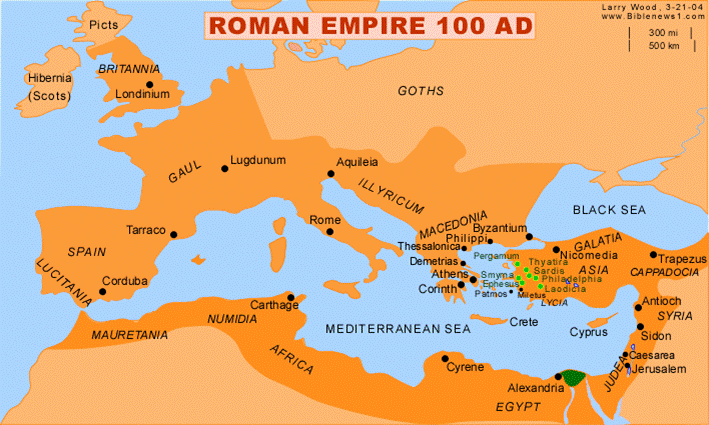



Rom 1:1-17; Rom 15:18-33; Acts 19:1,10,21-22; Acts 20:1-6; Acts 18: 1-2.
WTROM-1-140115 - length: 57:36 - taught on Jan, 15 2014
Class Outline:
We are now going to study the New Testament epistles from start to finish.
Romans is the book that maps out the GOOD NEWS from start to finish.
Please read the entire letter of Romans at least once during the next two weeks.
The Lord Jesus Christ, the Son of God
The Gospel - GOOD NEWS!
God, God our Father
Apostle/apostleship
Faith/believe
Saints/called
Grace
Gentiles/Greeks
Rome
Spirit/spirit/spiritual
Righteousness/Righteous
You
I
Some historical background to this epistle to the Romans.
Paul had never visited the saints in Rome although he longed to be able to do so.
We don’t know how the church in Rome was founded.
The saints at Rome consisted of both Jews and Gentiles, but mainly Gentiles.
There are a lot of mentions of Jews and Gentiles together in the book of Romans, and at the end of the letter Paul admonishes them to get along and accept one another.
There are also a lot of references to the Old Testament scriptures and to Old Testament figures in the book of Romans.
We can pinpoint when and where Paul wrote Romans with greater confidence than perhaps any other letter in the New Testament.
Paul informs the Romans that he is finished with his missionary work in the east (ROM 15:19-23)…
… and that he plans to visit Rome after completing his proposed visit to Jerusalem (ROM 15:24-32).

After that , Paul planned to bring the Gospel to the western Roman Empire with Rome as his base of operations.
When we compare Romans with Acts, the time and place for Paul writing Romans becomes clear.
So Paul wrote Romans during the three month period in Acts 20:3 when he was in Greece.
In all likelihood, Paul wrote Romans between AD 55 and AD 58 - AD 57 is most likely - while he was in Corinth.
This shows the value of using a book of history like Acts to shed light on a book like Romans that gives instruction to the saints.
Roman Emperors
Claudius: AD 41-54.
Nero: AD 54-68.